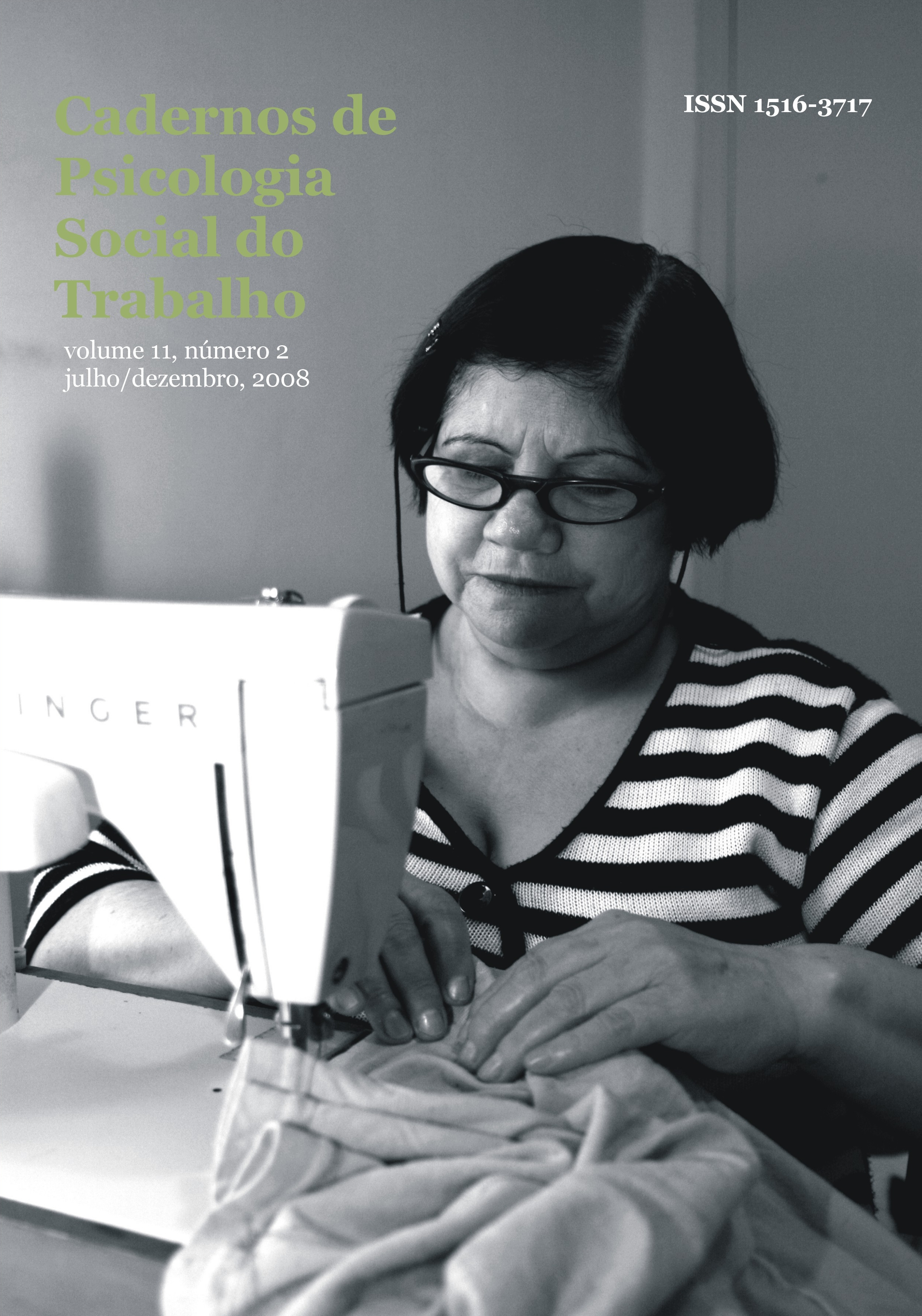Those who are aloud order, those who are smart obey: pleasure and psychic suffering in management positions
DOI:
https://doi.org/10.11606/issn.1981-0490.v11i2p139-157Keywords:
Psychology, Work, Manager, Pleasure, SufferingAbstract
This article aims to approach the theme of psychic pleasure and suffering present in the managers work, allowing them to talk about their work contents, about the relations involved in their professional routine and about the role work represents in their lives. Thus, first is provided a theory basis and then are presented the results of a research developed through semi-structured interviews with 20 managers. Its results were treated according to the content analysis method and indicate a great demand for autonomy and recognition, the resentment for the too much time dedicated to work, the unbalance between personal and professional life and call the attention for the importance of the interpersonal relations at work as a factor that can make it tend to a negative or a positive experience. As a conclusion, it was founded out that the frontier between pleasure and suffering at work is a very thin one and that finding its adjustment should/might be the big challenge for management and work scientists, for working individuals and for organizations, that must admit that the effects of its actions affect workers physical and mental health and have influence on the way society is organized.Downloads
Download data is not yet available.
Downloads
Published
2008-12-01
Issue
Section
nd
License

How to Cite
Those who are aloud order, those who are smart obey: pleasure and psychic suffering in management positions. (2008). Cadernos De Psicologia Social Do Trabalho, 11(2), 139-157. https://doi.org/10.11606/issn.1981-0490.v11i2p139-157






